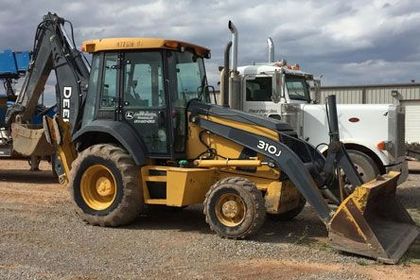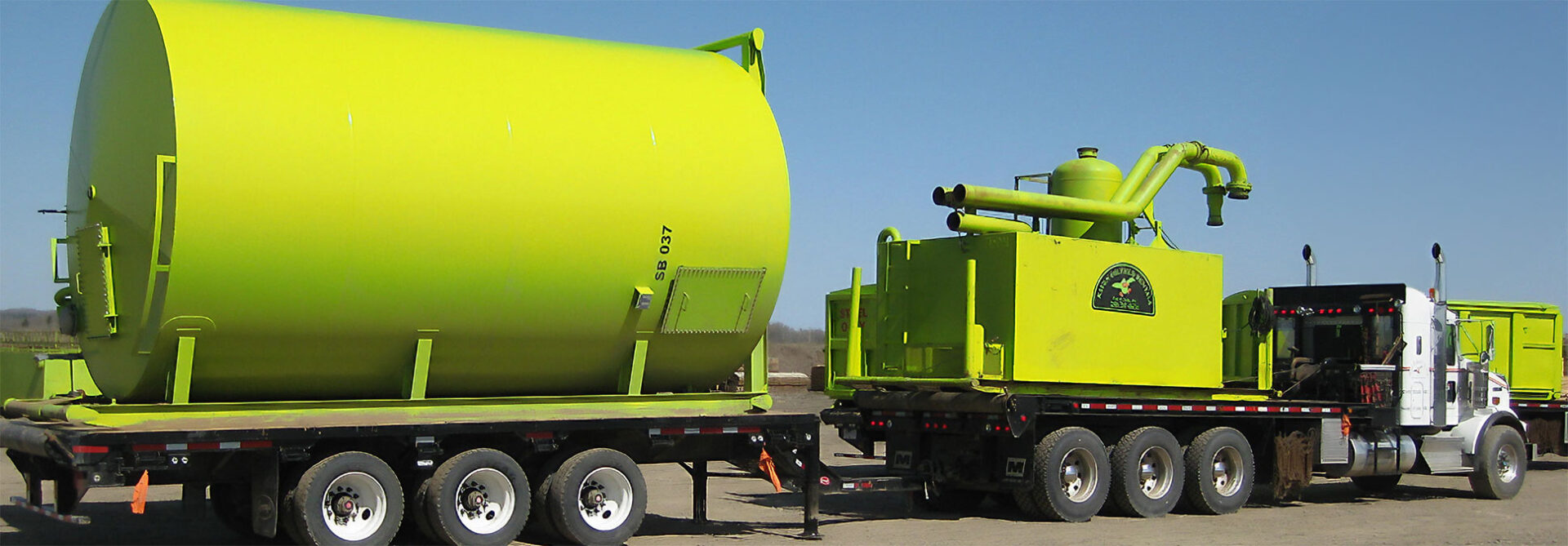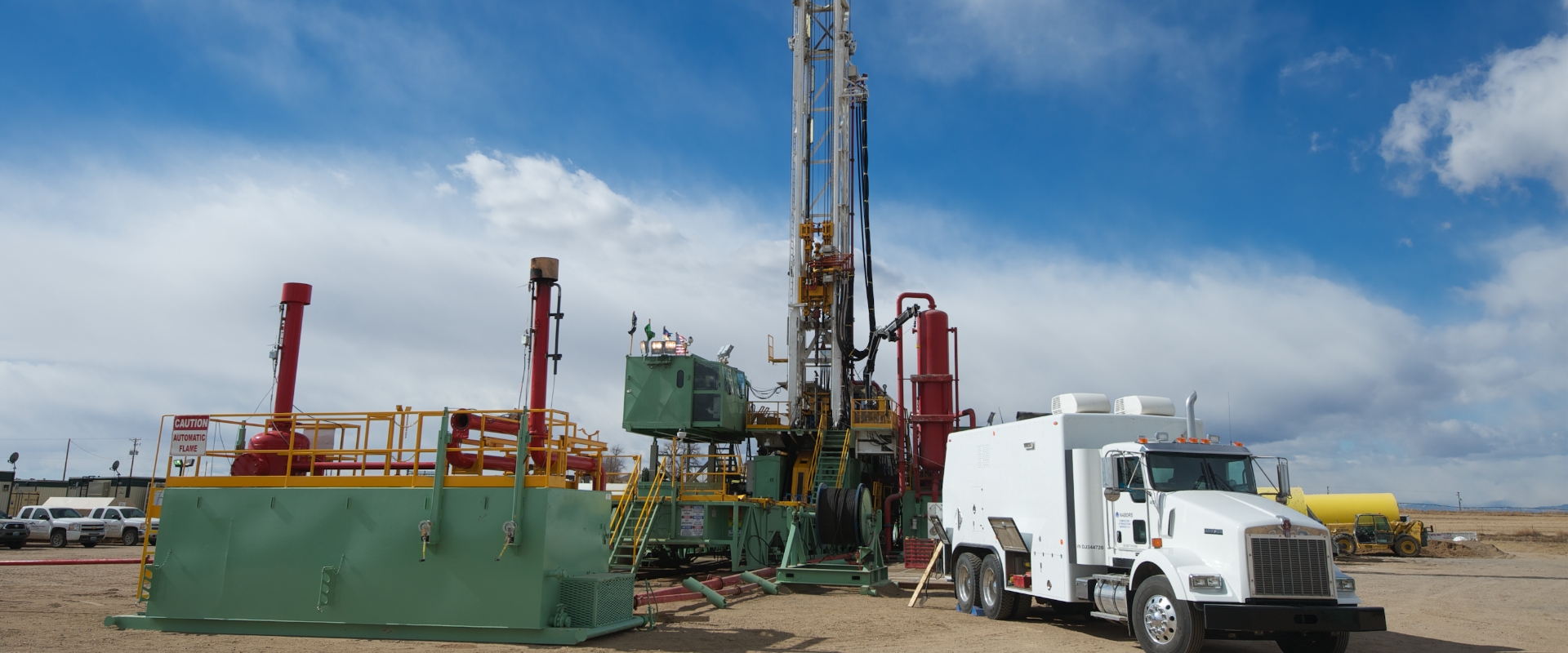Superior Oilfield Rentals: budget benefits you should know
A Comprehensive Overview to the Various Types of Oil Field Equipment and Pipeline Equipment Available
The oil and gas sector counts heavily on customized equipment for efficient extraction and transport. Numerous kinds of equipment, from piercing rigs to tank, play crucial duties in this intricate procedure. Each tool serves unique features that add to total operational success. Comprehending these parts is crucial for any individual associated with the market. As the market advances, so too do the technologies that sustain it. What improvements are on the perspective?

Drilling Rigs: The Foundation of Oil Exploration
Drilling rigs act as the essential equipment in the domain name of oil exploration, making it possible for companies to accessibility hydrocarbon gets buried deep beneath the Earth's surface. These rigs come in numerous types, including land rigs, offshore rigs, and mobile devices, each designed to operate in particular atmospheres. Equipped with sophisticated modern technology, drilling rigs can pass through geological formations with accuracy, making certain efficient resource extraction. The architectural stability and operational capacities of these rigs are critical, as they have to withstand extreme problems and considerable stress. The option of a drilling gear influences the general job cost and timeline, making it a crucial consideration for oil companies seeking to maximize their exploration initiatives and make the most of productivity in their procedures.
Pumps: Crucial for Liquid Motion
In the oil removal process, the function of pumps is substantial, facilitating the movement of fluids throughout different phases of production. Pumps are important for transferring crude oil, water, and other liquids from below ground storage tanks to the surface area and after that through pipelines to refineries. They can be found in different kinds, including centrifugal, favorable displacement, and completely submersible pumps, each offering particular functions based upon the liquid characteristics and operational demands. Centrifugal pumps are typically used for their effectiveness in high-flow applications, while favorable displacement pumps master managing thick liquids. The option of pump effects total efficiency, functional security, and maintenance expenses. Appropriate option and maintenance of pumps are important for optimizing manufacturing and reducing downtime in oil field operations.
Shutoffs: Managing Circulation and Pressure

Valves play a vital duty in taking care of the circulation and stress of fluids within oil fields and pipelines. Various sorts of valves offer unique applications, each developed to satisfy certain functions essential for efficient operation - Superior Rentals Contact. Understanding the qualities and uses these shutoffs is crucial for maximizing system efficiency and security
Sorts of Valves
Important elements in oil area procedures, shutoffs play a critical role in regulating the flow and pressure of fluids within pipes and equipment. Various types of shutoffs are made use of to satisfy the varied requirements of oil and gas production. Common types consist of gate valves, which give a straight-line circulation and marginal pressure drop; globe shutoffs, recognized for their strangling capacities; and ball shutoffs, identified for their fast on/off control. Additionally, check shutoffs prevent backflow, while butterfly valves provide a light-weight service for controling flow. Each valve kind is designed with particular products and arrangements to withstand the severe conditions often located in oil areas, guaranteeing integrity and effectiveness in operations. Comprehending these kinds is important for efficient system administration.
Valve Applications and Features
While different kinds of valves serve distinct functions, their main applications focus on controlling flow and pressure within oil and gas systems. Valves such as gateway, globe, and ball valves control liquid movement, guaranteeing peak performance and safety and security. Gateway shutoffs are frequently used for on/off control, offering marginal circulation resistance. World shutoffs, on the other hand, deal accurate circulation law, making them appropriate for strangling applications. Ball valves are favored for their fast operation and tight securing abilities. On top of that, pressure relief shutoffs are essential for protecting against system overpressure, guarding equipment honesty. In general, the ideal option and application of shutoffs improve operational efficiency, ensuring the reliable transport of oil and gas via pipes and processing facilities.
Compressors: Enhancing Gas Transportation
Compressors play a critical role in the reliable transportation of gas, guaranteeing that it relocates smoothly with pipes over fars away. These gadgets increase the stress of natural gas, enabling it to conquer friction and altitude modifications within the pipeline system. In addition, compressors assist in the harmonizing of supply and demand, fitting fluctuations in usage and manufacturing prices. Various kinds of compressors are employed in the sector, consisting of centrifugal, reciprocating, and rotating screw compressors, each offering distinctive benefits based on the functional needs. Normal maintenance of these compressors is vital to take full advantage of performance and reduce downtime, eventually contributing to a trustworthy gas transportation network. Their essential function underscores the visit this web-site importance of compressors in the general oil and gas facilities.
Storage Tanks: Safe and Efficient Fluid Administration
Efficient transport of gas depends on numerous commercial gas line installation sustaining systems, among which is the proper monitoring of tank. These containers play an important function in safely consisting of fluids, making certain that operational performance is kept while minimizing ecological dangers. Created from durable products, they are created to withstand high pressures and harsh components. Properly sized and purposefully situated, storage tanks facilitate the smooth circulation of all-natural gas and various other liquids, avoiding bottlenecks in supply chains. Regular maintenance and monitoring are important to spot leaks or structural problems, advertising safety and security and compliance with governing requirements. Inevitably, the reliable monitoring of tank is crucial for the general honesty and integrity of the oil and gas sector's liquid handling systems.
Pipeline Systems: Infrastructure for Transport
Pipeline systems serve as the foundation of the oil and gas sector, facilitating the effective transport of hydrocarbons over vast ranges. These systems are composed of various elements, consisting of pipes, valves, pumps, and compressors, all meticulously made to guarantee smooth circulation. The products used in pipeline construction, usually steel or high-density polyethylene, are chosen for longevity and resistance to deterioration. Pipeline networks can span visit this site right here throughout land and water, attaching production sites to refineries and warehouse. Furthermore, progressed innovation allows real-time surveillance of flow rates and stress levels, boosting operational efficiency. The strategic positioning of these pipes minimizes ecological impact while making the most of resource availability, consequently playing an essential duty in conference energy demands worldwide.
Security Equipment: Making Sure Worker and Environmental Security
The procedure of pipeline systems, while vital for energy transportation, additionally provides considerable safety and security difficulties for workers and the atmosphere. Safety and security tools plays a substantial role in mitigating these threats. Individual safety equipment (PPE) such as headgears, gloves, and non-slip footwear safeguards workers from physical dangers. In addition, gas discovery systems check for leaks, guaranteeing that hazardous compounds do not posture a risk to personnel or the surrounding community. Emergency situation closure systems are critical for rapidly halting operations during a situation, avoiding potential calamities. Spill control products, consisting of absorbents and barriers, are essential for reducing environmental impact. Generally, investing in all-inclusive security devices is crucial for keeping operational integrity and protecting both employees and the environment in the oil and gas market.

Frequently Asked Questions
Exactly how Do I Select the Right Oil Field Equipment for My Project?
Selecting the best oil area tools includes assessing job specs, budget restrictions, and functional requirements. Consider elements such as tools dependability, compatibility with existing systems, and the supplier's reputation to ensure peak efficiency and safety and security.
What Are the Maintenance Needs for Oil Field Equipment?
Upkeep requirements for oil field tools consist of normal evaluations, lubrication, and prompt repair services. Operators needs to additionally stick to producer standards, display efficiency metrics, and guarantee conformity with safety regulations to improve durability and performance.

Just How Can I Make Certain Compliance With Environmental Rules?
To guarantee conformity with ecological regulations, business have to carry out regular audits, implement finest techniques, purchase training, maintain proper paperwork, and stay updated on legislation (Superior Rentals midland). Cooperation with environmental agencies can additionally boost adherence to regulations
What Is the Ordinary Life Expectancy of Pipeline Equipment?
The average life expectancy of pipeline devices commonly varies from 20 to half a century, depending on factors such as material high quality, environmental conditions, and upkeep methods. Regular evaluations can greatly affect durability and operational efficiency.
Exactly how Do I Safely Deliver Oil Field Equipment to Remote Locations?
Transferring oil area devices to remote places needs cautious planning, including route analysis, protecting licenses, using proper vehicles, and making certain security methods are adhered to. Proper training and interaction among crews are vital for successful transport.